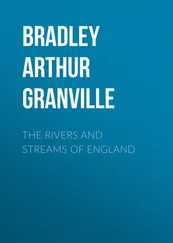Thomas Bulfinch - Oregon and Eldorado; or, Romance of the Rivers
Здесь есть возможность читать онлайн «Thomas Bulfinch - Oregon and Eldorado; or, Romance of the Rivers» — ознакомительный отрывок электронной книги совершенно бесплатно, а после прочтения отрывка купить полную версию. В некоторых случаях можно слушать аудио, скачать через торрент в формате fb2 и присутствует краткое содержание. ISBN: , Жанр: foreign_antique, foreign_prose, на английском языке. Описание произведения, (предисловие) а так же отзывы посетителей доступны на портале библиотеки ЛибКат.
- Название:Oregon and Eldorado; or, Romance of the Rivers
- Автор:
- Жанр:
- Год:неизвестен
- ISBN:http://www.gutenberg.org/ebooks/38774
- Рейтинг книги:3 / 5. Голосов: 1
-
Избранное:Добавить в избранное
- Отзывы:
-
Ваша оценка:
- 60
- 1
- 2
- 3
- 4
- 5
Oregon and Eldorado; or, Romance of the Rivers: краткое содержание, описание и аннотация
Предлагаем к чтению аннотацию, описание, краткое содержание или предисловие (зависит от того, что написал сам автор книги «Oregon and Eldorado; or, Romance of the Rivers»). Если вы не нашли необходимую информацию о книге — напишите в комментариях, мы постараемся отыскать её.
Oregon and Eldorado; or, Romance of the Rivers — читать онлайн ознакомительный отрывок
Ниже представлен текст книги, разбитый по страницам. Система сохранения места последней прочитанной страницы, позволяет с удобством читать онлайн бесплатно книгу «Oregon and Eldorado; or, Romance of the Rivers», без необходимости каждый раз заново искать на чём Вы остановились. Поставьте закладку, и сможете в любой момент перейти на страницу, на которой закончили чтение.
Интервал:
Закладка:
"After making eleven miles, we reached an old field, where the Mandans had cultivated grain last summer. We encamped for the night about half a mile below the first village of the Mandans. As soon as we arrived, a crowd of men, women, and children, came down to see us. Capt. Lewis returned with the principal chiefs to the village, while the others remained with us during the evening. The object which seemed to surprise them most was a corn-mill, fixed to the boat, which we had occasion to use; while they looked on, and were delighted at observing the ease with which it reduced the grain to powder.
"Among others who visited us was the son of the grand chief of the Mandans, who had both his little fingers cut off at the second joint. On inquiring into this injury, we found that the custom was to express grief for the death of relations by some corporeal suffering, and that the usual mode was to lose a joint of the little finger, or sometimes of other fingers.
"Oct. 29, 1804. – The morning was fine, and we prepared our presents and speech for the council. At ten o'clock, the chiefs were all assembled under an awning of our sails. That the impression might be the more forcible, the men were all paraded; and the council opened by a discharge from the swivel of the boat. Capt. Lewis then delivered a speech, which, like those we had already made, intermingled advice with assurances of friendship and trade. While he was speaking, the Ahnahaway chief grew very restless, and observed that he could not wait long, as his camp was exposed to the hostilities of the Shoshonees. He was instantly rebuked with great dignity, by one of the chiefs, for this violation of decorum at such a moment, and remained quiet during the rest of the council. This being over, we proceeded to distribute the presents with great ceremony. One chief of each town was acknowledged by the gift of a flag, a medal with the likeness of the President of the United States, a uniform coat, hat, and feather. To the second chiefs we gave a medal representing some domestic animals, and a loom for weaving; to the third chiefs, medals with the impression of a farmer sowing grain. A variety of other products were distributed; but none seemed to give more satisfaction than an iron corn-mill which we gave them.
"In the evening, our men danced among themselves to the music of the violin, to the great amusement of the Indians."
"Friday, Nov. 7, 1804. – Capt. Clarke having examined the shores, and found a position where there was plenty of timber, we encamped, and began to fell trees to build our huts. The timber which we employ is cotton-wood (poplar) and elm, with some ash of inferior size. By the 8th, our huts were advanced very well; on the 13th, we unloaded the boat, and stowed away the contents in a storehouse which we had built.
"Nov. 20. – This day we moved into our huts, which are now completed. We call our place Fort Mandan. It is situated on a point of low ground on the north side of the Missouri, covered with tall and heavy cotton-wood. The works consist of two rows of huts or sheds, forming an angle where they join each other; each row containing four rooms of fourteen feet square and seven feet high, with plank ceiling, and the roof slanting so as to form a loft above the rooms, the highest part of which is eighteen feet from the ground. The backs of the huts formed a wall of that height; and, opposite the angle, the place of the wall was supplied by picketing. In the area were two rooms for stores and provisions. The latitude, by observation, is 47° 22´, long. 101°; and the computed distance from the mouth of the Missouri, sixteen hundred miles.
"Nov. 21. – We are now settled in our winter habitation, and shall wait with much impatience the first return of spring to continue our journey."
CHAPTER V.
INDIAN TRIBES
"The villages near which we are established are the residence of three distinct nations, – the Mandans, the Ahnahaways, and the Minnetarees. The Mandans say, that, many years ago, their tribe was settled in nine villages, the ruins of which we passed about eighty miles below. Finding themselves wasting away before the small-pox and the Sioux, they moved up the river, and planted themselves opposite the Ricaras. Their numbers are very much reduced, and they now constitute but two villages, – one on each side of the river, and at a distance of three miles from each other. Both villages together may raise about three hundred and fifty men."
"Four miles from the lower Mandan village is one inhabited by the Ahnahaways. This nation formerly dwelt on the Missouri, about thirty miles below where they now live. The Assinaboins and Sioux forced them to a spot five miles higher, and thence, by a second emigration, to their present situation, in order to obtain an asylum near the Minnetarees. Their whole force is about fifty men."
"About half a mile from this village, and in the same open plain with it, is a village of Minnetarees, who are about one hundred and fifty men in number. One and a half miles above this village is a second of the same tribe, who may be considered the proper Minnetaree nation. It is situated in a beautiful plain, and contains four hundred and fifty warriors. The Mandans say that this people came out of the water to the east, and settled near them. The Minnetarees, however, assert that they grew where they now live, and will never emigrate from the spot; the Great Spirit having declared, that, if they move, they will all perish.
"The inhabitants of these villages, all of which are within the compass of six miles, live in harmony with each other. Their languages differ to some extent; but their long residence together has enabled them to understand one another's speech as to objects of daily occurrence, and obvious to the senses.
"All these tribes are at deadly feud with the Sioux, who are much more powerful, and are consequently objects of continual apprehension. The presence of our force kept the peace for the present.
"Almost the whole of that vast tract of country comprised between the Mississippi, the Red River of Lake Winnipeg, the Saskatchawan, and the Missouri, is loosely occupied by a great nation whose primitive name is Dahcotas, but who are called Sioux by the French, Sues by the English. They are divided into numerous tribes, named Yanktons, Tetons, Assinaboins, &c. These tribes are sometimes at war with one another, but still acknowledge relationship, and are recognized by similarity of language and by tradition."
"The religion of the Mandans consists in the belief of one Great Spirit presiding over their destinies. This Being must be in the nature of a good genius, since it is associated with the healing art; and the Great Spirit is synonymous with Great Medicine, – a name also applied to every thing they do not comprehend. They also believe in a multiplicity of inferior spirits. Each individual selects for himself the particular object of his devotion, which is termed his Medicine, and is either an invisible being, or more commonly some animal, which thenceforward becomes his protector, or his intercessor with the Great Spirit. To propitiate the Medicine, every attention is lavished, and every personal consideration is sacrificed. 'I was lately owner of seventeen horses,' said a Mandan; 'but I have offered them all up to my Medicine, and am now poor.' He had in reality taken them into the plain, and, turning them loose, committed them to the care of his Medicine, and abandoned them.
"Their belief in a future state is connected with a tradition of their origin. The whole nation, they say, once dwelt in one large village underground. A grape-vine extended its roots down to their habitation; and the earth, being broken round its stem, gave them a view of the light. Some of the more adventurous climbed up the vine, and were delighted with the sight of the earth, which they found covered with buffaloes, and rich with every kind of fruit. Returning with the grapes they had gathered, their countrymen were so pleased with the taste, that the whole nation resolved to leave their dull residence for the upper region. Men, women, and children ascended by means of the vine; but, when about half the nation had reached the surface, a corpulent woman, who was clambering up the vine, broke it with her weight, and, falling, closed up the cavity. Those who had reached the surface, thus excluded from their original seats, cherish the hopes of returning there when they die."
Читать дальшеИнтервал:
Закладка:
Похожие книги на «Oregon and Eldorado; or, Romance of the Rivers»
Представляем Вашему вниманию похожие книги на «Oregon and Eldorado; or, Romance of the Rivers» списком для выбора. Мы отобрали схожую по названию и смыслу литературу в надежде предоставить читателям больше вариантов отыскать новые, интересные, ещё непрочитанные произведения.
Обсуждение, отзывы о книге «Oregon and Eldorado; or, Romance of the Rivers» и просто собственные мнения читателей. Оставьте ваши комментарии, напишите, что Вы думаете о произведении, его смысле или главных героях. Укажите что конкретно понравилось, а что нет, и почему Вы так считаете.












